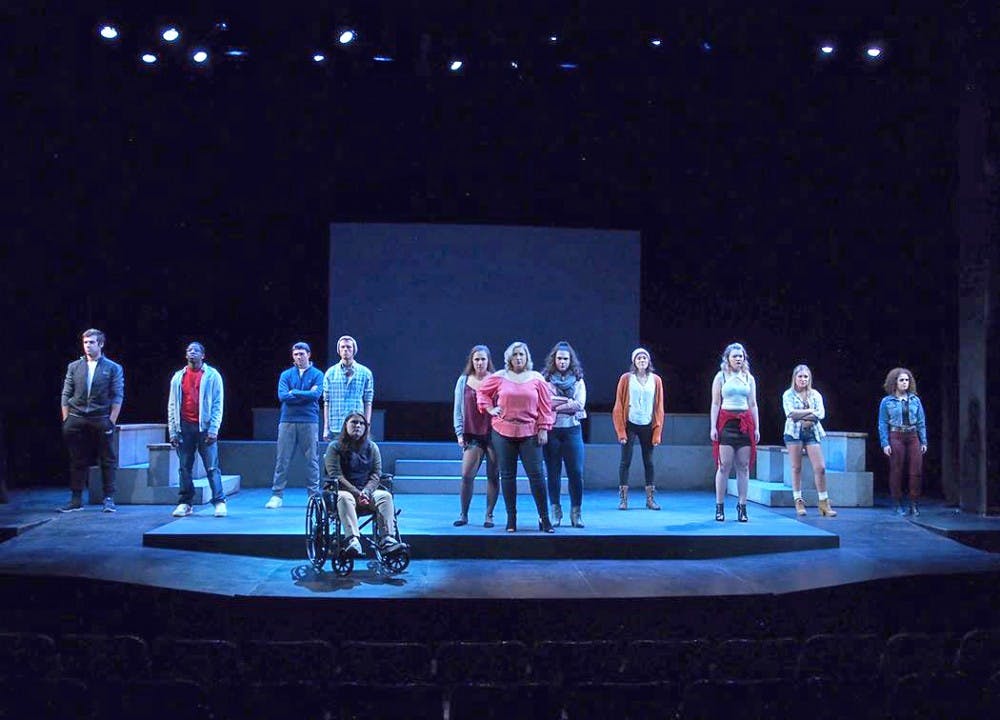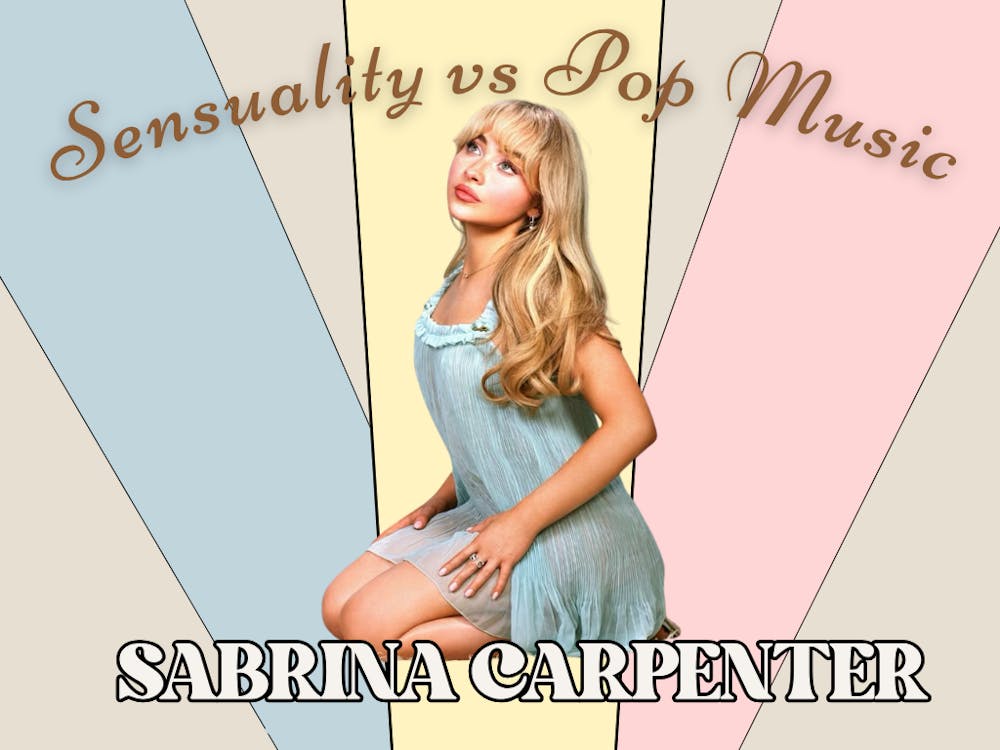"This play is hard. This play is timely. This play is necessary."
Torie Wiggins, director of "Good Kids," wrote this in the show's program, connecting the performance's main issue of sexual assault to the problem on Miami's campus today. "Good Kids" was the second main stage production of Miami's theatre department season.
The play was written by Naomi Iizuka, and is based on the real story of a 16-year-old girl in Steubenville, Ohio who was raped at a party in 2012. Throughout the show, characters portray attitudes of the stigma associated with both the act of, and the accusations of sexual assault.
The play centers around the character of Chloe, played by junior theatre major Molly Boozel, and follows her through the events leading up to her being raped on the night of a high school party. She must piece together what happened from the accounts of others and video footage that was taken of her that night, as she cannot remember.
Throughout the show, phrases like "things just got out of hand," "I don't remember" and "she was asking for it" are repeated as the show takes the audience through a whirlwind of scenes depicting the night's events. The audience is left to piece together what happened on their own, as the scenes are not presented in chronological order.
The play featured realistic scene work and modern dialogue, and the cast and crew did an excellent job of re-enacting the stereotypes of mean girls and jocks. It also tackled other snares of high school life like students using social media as a weapon, derogatory language to harm peers and downplaying dire circumstances.
This show did not shy away from anything with its use of harsh language and controversial name-calling. Words like "slut," "whore" and "rapist," as well as the depiction of violence was necessary in exhibiting the severity of the accusations and reality of rape culture.
It was advertised that the material in the show may be triggering to some audience members, and leaflets were provided in the program containing information on how to leave the theater should anyone need to. Though the material was intense and at times hard to watch, the content was highly relevant to the culture of collegiate society, especially surrounding the stigma of the word "rape."
The cast did a wonderful job depicting difficult subjects like hookup culture, drinking to blackout and victim blaming. Junior theatre major Abby Chafe's performance as Amber emphasized misconceptions people may have about victims "asking for it" based on their reckless behavior or the way they dress.
The character of Landon, played by junior Austin Lamewona, used his phone to take videos of his friends "having fun" with Chloe. This act triggered the character of Skyler, played by junior Marjorie Trimble, to question why no one was doing anything about the situation. Skyler served as the voice of reason in the show.
The show's most striking aspect came in the form of the character Dierdre, played by junior theatre major Melissa Rowan, who narrated the happenings in chilling and accusatory dialogue. Dierdre is seen as a third party opinion and carries the story along with the use of directorial language such as play, pause and rewind to allow for some sense of flow as the characters in the show seek an answer that is never given.
Dierdre capitalizes on the fact that some teenagers will say anything to undermine an uncomfortable situation and won't speak out for what's right in fear of the consequences.
Enjoy what you're reading?
Signup for our newsletter
The set was minimal and incorporated steel benches and risers with a singular projector screen in the background, and transitions rendered in a "filmic way," according to set designer Gion DeFrancesco. Technical elements like sound and lighting effects portrayed a tape being played and paused periodically.
The play ends with the words, "This will be part of the story I tell," emphasizing that this performance is less of a symbol of hope and light than a call for justice in the wake of the #MeToo movement for all involved.




